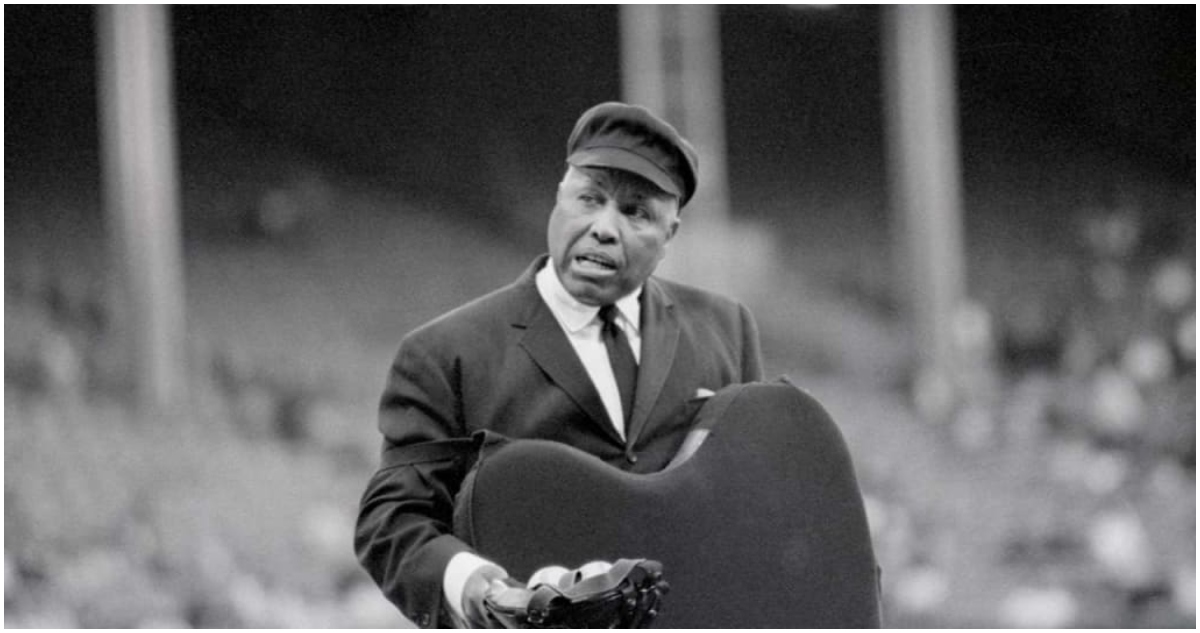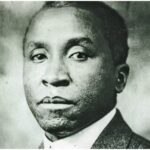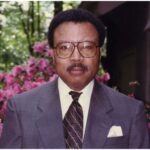Emmett Ashford, Major League Baseball’s first Black umpire, is a trailblazer who faced and overcame numerous challenges to achieve greatness. Known for his colorful style on the field, Ashford’s career in the Major Leagues was not only groundbreaking but also full of inspiring moments. His journey from a young man with dreams of playing baseball to becoming a respected umpire is a testament to his resilience, talent, and passion for the game.
A Colorful and Animated Umpire
Ashford was born in Los Angeles in 1914. Although he was active in sports throughout his school years, including playing for the track and baseball teams at Jefferson High School, it wasn’t until much later that he found his true calling. While attending Chapman College, Ashford worked as a post office clerk for 15 years. During this time, he also pursued semi-pro baseball, though he spent more time on the bench than playing. His life took an unexpected turn in 1941 when he was asked to step in as an umpire in a local game. Though reluctant at first, Ashford’s showmanship quickly won over the crowd, and his career as an umpire took off.
As Ashford continued his journey, he made his mark with a unique, animated style behind the plate. Fans loved his vibrant calls and lively interactions with players, making him one of the most entertaining umpires to watch. His unmistakable personality and commitment to fair play earned him respect both from players and fans alike.
Breaking Barriers in Baseball
Emmett Ashford’s rise through the ranks of baseball was filled with obstacles, but he never let those stand in his way. After a stint in the U.S. Navy during World War II, he began umpiring regularly, moving up from college baseball to the Southwestern International League (SIL) in 1951. His impressive performance caught the attention of league officials, and he was offered a full-time umpiring job. By 1953, Ashford had moved up to the Western International League, and just a year later, he joined the prestigious Pacific Coast League.
For Ashford, being the first Black umpire in Major League Baseball wasn’t just a personal achievement. It was a victory for all those who had been denied opportunities because of the color of their skin. Before his debut in 1966, he had already earned a reputation as one of the best-known umpires in the minor leagues. His promotion to the big leagues was a historic moment, but it was only the beginning of his impact on the game.
A Historic MLB Debut
On April 11, 1966, Emmett Ashford made his Major League Baseball debut at Griffith Stadium in Washington D.C. during the American League opener between the Cleveland Indians and the Washington Senators. The day was unforgettable, but not without its challenges. Ashford’s first hurdle came even before stepping onto the field. The Secret Service, skeptical that a Black umpire could be assigned to a major league game, questioned his presence.
Despite the doubts, Ashford handled the situation with grace, showing that his talent spoke louder than any prejudice. The day was a significant milestone in his career, and MLB President Joe Cronin later told him, “Emmett, today you made history. I’m proud of you.”
Overcoming Hostility and Prejudice
Though Ashford’s arrival in Major League Baseball was a breakthrough, it was far from smooth sailing. Many of his peers were resistant to working with a Black umpire, and Ashford often found himself facing unwarranted hostility. Fellow umpires would talk behind his back, and some even refused to engage with him on the field. According to pitcher Jim Bouton, Ashford’s experience was isolating, with many of his colleagues keeping their distance during games.
Despite the difficulties, Ashford remained determined to prove his worth. He refused to let the prejudice of others define his career and worked tirelessly to gain the respect he deserved. His remarkable contributions to the game, including umpiring in the 1970 World Series, solidified his legacy as one of the sport’s most influential figures.
Life After Baseball
Ashford’s post-baseball years saw him continue to contribute to the sport in various ways. He worked as a public relations advisor to MLB Commissioner Bowie Kuhn and occasionally umpired minor league and college games. Ashford also called old-timers’ games at Dodger Stadium and served as umpire-in-chief for the Alaskan summer league. Throughout his career, Ashford maintained a grounded perspective on his work. He once said, “I was an umpire, not a black umpire.”
Even after his retirement, Ashford continued to influence the game and make appearances on television. His groundbreaking role in baseball remains a source of inspiration, as he defied the odds to become a respected figure in the world of professional sports.
Emmett Ashford’s Lasting Impact
Emmett Ashford’s legacy is much more than his historic role as the first Black umpire in Major League Baseball. He demonstrated resilience in the face of adversity, proving that determination and hard work can overcome even the most difficult challenges. Ashford’s contributions to baseball go beyond the calls he made on the field—they are a symbol of progress and change in a sport that has grown to be more inclusive thanks to his pioneering efforts.





